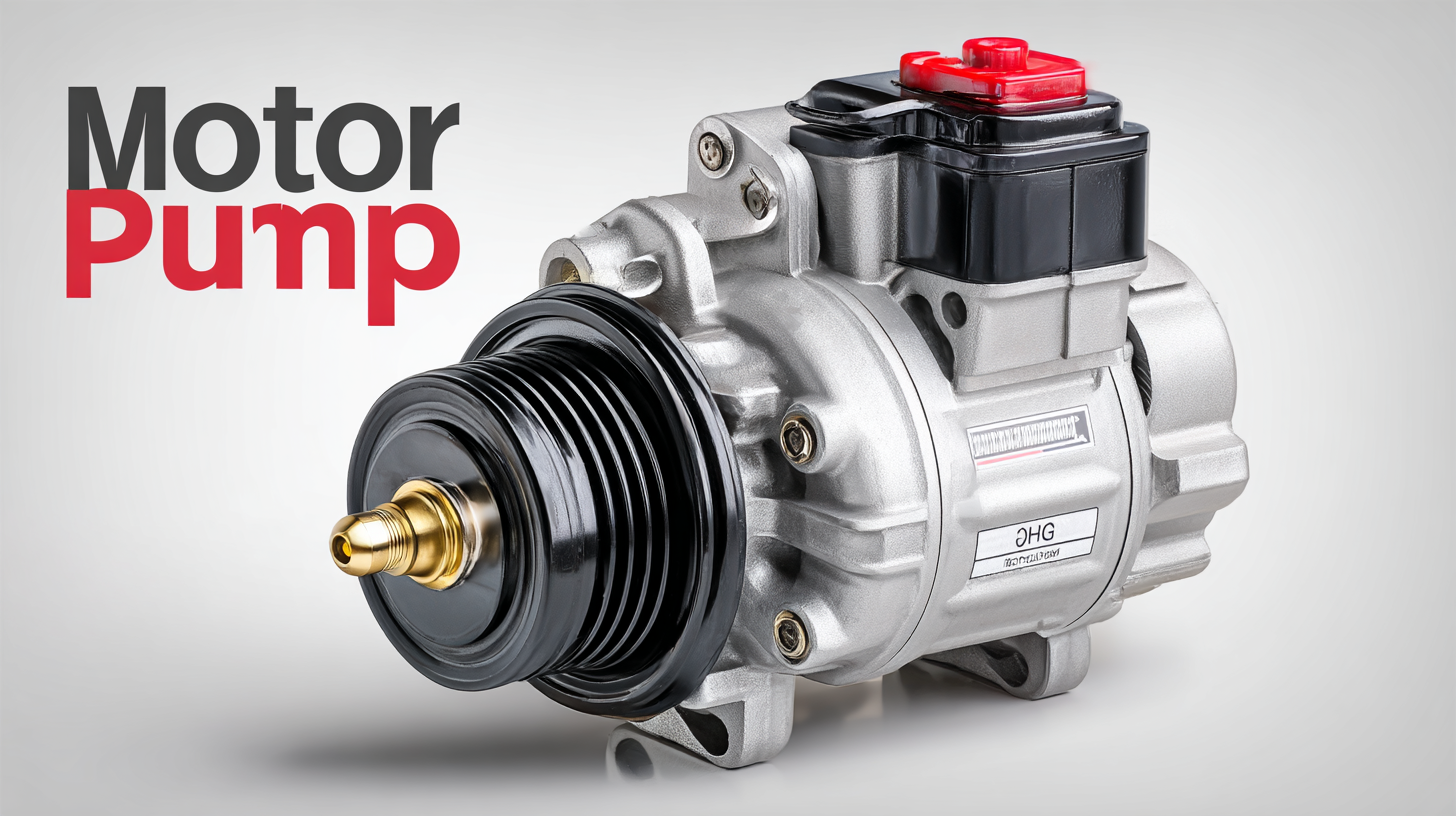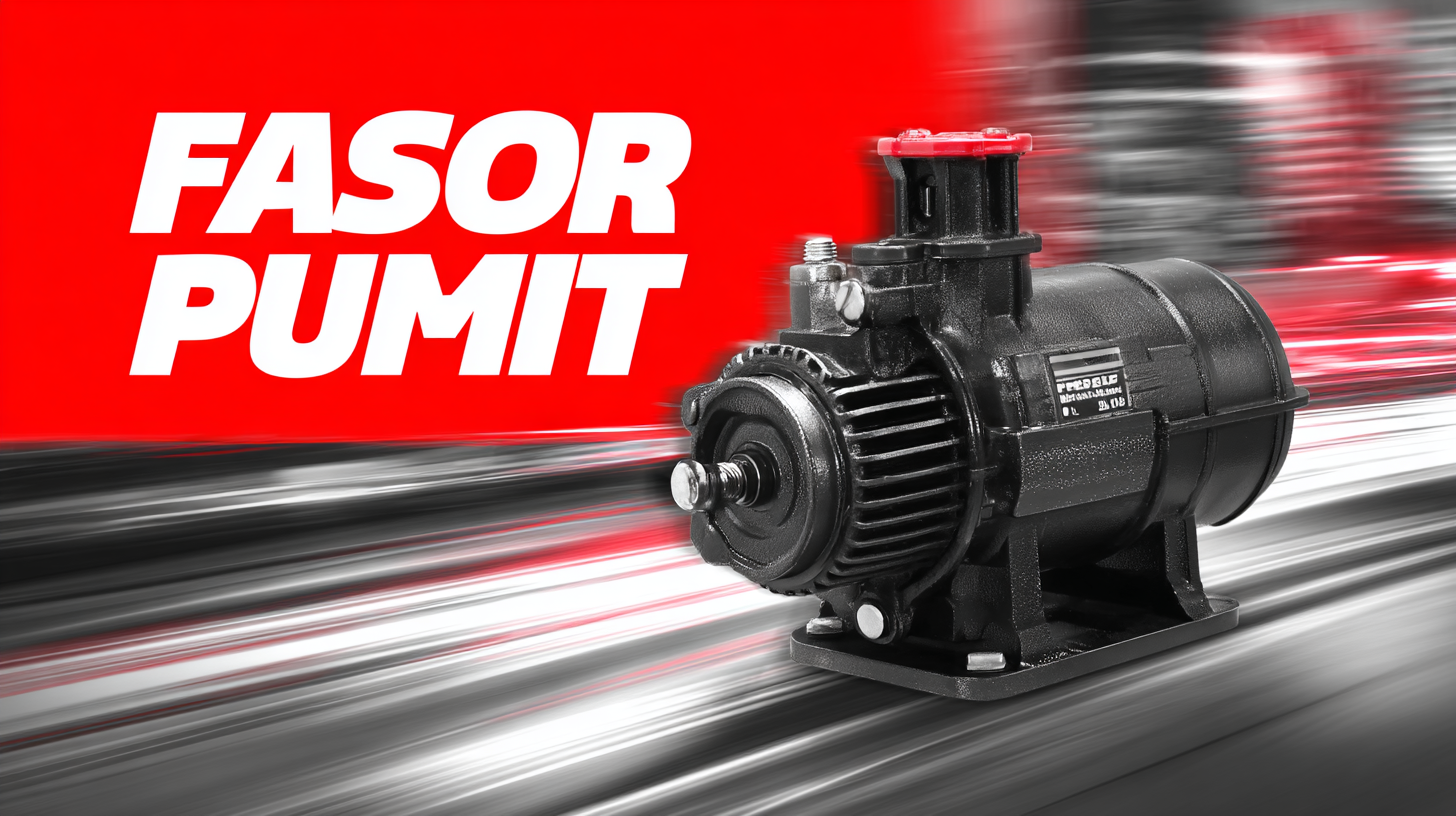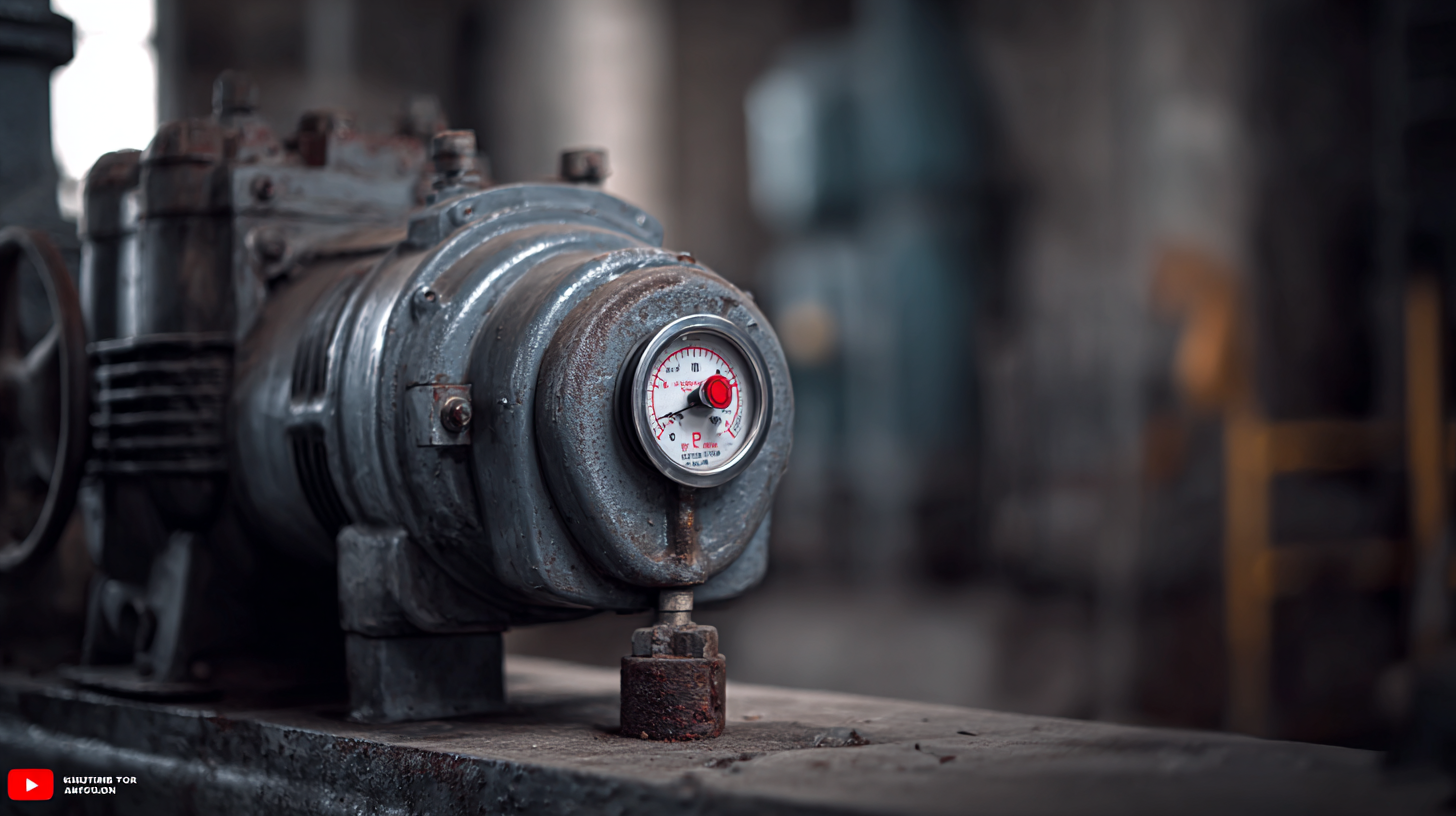

In today’s rapidly evolving industrial landscape, selecting the right motor pump is critical for optimizing operational efficiency and ensuring sustainability. According to a recent report by Grand View Research, the global pump market is projected to reach $105.5 billion by 2025, with motor pumps accounting for a significant portion due to their versatility and efficiency in various applications. As businesses increasingly lean towards automation and advanced pumping solutions, understanding the specific needs of your operations becomes paramount. This blog will provide seven ultimate tips to guide you in choosing the best motor pump for your business requirements, thereby harnessing the power of cutting-edge Chinese manufacturing and technology to elevate your productivity to new heights.

When selecting the best motor pump for your business needs, a deep understanding of your specific requirements is crucial. Assessing the scale and type of operations you conduct will guide your decision-making process. For instance, if your business requires consistent and high-volume water flow, high-pressure motor pumps may be essential. These pumps are designed to handle rigorous tasks, making them suitable for applications such as reverse osmosis systems or large-scale irrigation.

Moreover, considering energy efficiency should be a priority. Investing in variable speed pumps can lead to significant cost savings by reducing energy consumption while ensuring optimal performance. These pumps adjust their flow rates and pressure according to demand, which not only enhances water flow but also minimizes wear on equipment, thereby extending its lifespan. By aligning your motor pump choice with both operational needs and energy efficiency, you can create a sustainable solution that meets your business objectives effectively.
When selecting a motor pump for your business, prioritizing key features can significantly impact operational efficiency and reliability. According to a recent report by the Hydraulic Institute, the efficiency of motor pumps can greatly vary, with optimal models achieving up to 85-90% operational efficiency. Ensuring that the motor pump you choose meets or exceeds these benchmarks will not only save energy but also reduce long-term operating costs. Look for pumps with high-quality components, such as stainless steel casings and ceramic seals, which enhance durability and lessen the risk of corrosion.

Another crucial feature is the pump's capacity to handle fluctuating demands. A study from the American Society of Mechanical Engineers highlights that over 30% of industrial facilities experience variability in water demand. Pumps with variable frequency drives (VFDs) offer the flexibility needed to adjust flow rates according to real-time requirements, thereby improving process control and minimizing wastage. Additional considerations should include noise levels, maintenance ease, and integration capabilities with existing systems. Investing time in understanding these specifications can lead to significant improvements in productivity and operational longevity for your business.
When selecting a motor pump for your business, evaluating the reliability and durability of the manufacturers is crucial. Reliability refers to the consistency of the pump’s performance under various operational conditions. A reputable manufacturer often provides extensive testing data and customer reviews, which can help gauge the pump's reliability over time. Look for manufacturers that offer clear warranties and service agreements, as these are indicators of confidence in their products' durability.
Durability is equally important, especially in demanding environments. When assessing manufacturers, consider the materials used in the construction of the motor pumps. High-quality materials not only enhance the lifespan of the pumps but also reduce maintenance costs over time. Additionally, researching the manufacturing processes and certifications can reveal the commitment to producing dependable products. A manufacturer that prioritizes robust design and engineering is more likely to deliver motor pumps that withstand wear and tear while meeting your business's long-term needs.
When selecting a motor pump for your business, a crucial aspect to consider is the balance between costs and value. According to a report from the National Association of Pump Manufacturers, around 30% of businesses overlook the long-term operational efficiencies and potential savings that arise from investing in higher-quality pumps. Although initial costs can be higher, these pumps often offer lower maintenance expenses and longer lifespans, which can significantly reduce total cost of ownership over time.
Moreover, a study by Global Market Insights highlighted that businesses that prioritize energy-efficient motor pumps can save up to 40% on energy costs compared to traditional models. This energy efficiency not only reduces operational costs but also aligns with sustainability goals, making it a savvy investment for eco-conscious companies. Thus, while evaluating motor pumps, it’s essential to compare the initial purchase price with anticipated savings from efficiency, reliability, and maintenance. The right choice can lead to improved performance and cost-effectiveness, ultimately helping businesses thrive in competitive markets.
When choosing a motor pump for your business, assessing after-sales support and warranty options is paramount. According to a report by MarketWatch, about 60% of businesses that experience pump failures report substantial financial losses due to downtime and repair costs. This underscores the importance of reliable after-sales service, as effective support can significantly minimize operational disruptions. A manufacturer offering robust support channels—like instant hotline assistance, online troubleshooting guides, and regular maintenance check-ins—can enhance efficiency and safeguard your investment.
Moreover, warranty options play a critical role in your decision-making process. A comprehensive warranty not only reflects the manufacturer's confidence in their product but also provides essential peace of mind for business operators. A study by Grand View Research indicates that companies typically lose 20% of their annual revenue on equipment failures. By securing a motor pump with an extensive warranty, often extending beyond the industry standard of one year, businesses can mitigate financial risks and ensure continuity in their operations. This proactive approach empowers businesses to focus on growth rather than repairs, reinforcing the significance of informed decisions in purchasing motor pumps.
This chart represents the assessment of after-sales support and warranty options across different motor pump types based on customer satisfaction ratings. Each rating is based on surveys conducted with business owners who have purchased motor pumps.